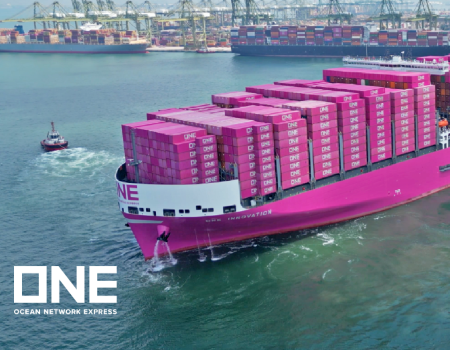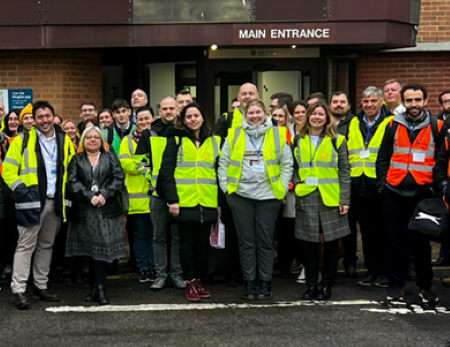ITM Editor, Rebecca Spayne, sits down with Robert Keen, Director General of the British International Freight Association (BIFA) to discuss the current freight landscape
BIFA acts as representation for a large number of freight forwarders, how are you helping guide the industry at this time?
In 2020, as in every year, we try to help our members and the businesses they serve by continuing to provide advice and information on a wide range of industry related topics. The knowledge of our Policy & Compliance department is wide-ranging and we give real, practical advice to our members, as can be judged from the volume of information on our website. Our training provision is comprehensive and whilst we had to enact a dramatic change in the methods used to deliver training, this aspect of our operations has never been stronger. We encourage members to have the technology, people and tools in place so that the supply chains they manage are even faster, more accurate and increasingly efficient.
As we gear up for the end of the transition period, do you think the industry is prepared for a possible no-deal Brexit outcome?
Whatever the outcome, I believe BIFA members will be ready and prepared. They have been recruiting and training additional customs staff and developing and enhancing their import and export systems, which has taken a lot of time and cost a lot of money. They have worked very hard to deliver advice and guidance to their clients, but have found it very difficult to make plans when, often, they have not known what they are actually planning for.
I am providing these answers in mid-December, so traders and logistics providers are still awaiting information and clarity from the government on how UK-EU trade will operate in future. They still need the UK government to provide further information and resources they require, and systems that actually work, in order to be able to do what is necessary to keep cross border trade moving, come January 1st 2021.
How has the industry tackled the Covid-19 crisis?
The crisis caused by Covid-19 has delivered greater understanding of the key role of freight forwarders to the authorities and the wider audience that rely on the commodities being delivered through international supply chains.
The response of the industry has been incredible. 2020 has put freight, transport and logistics firmly in the spotlight at the heart of our national life. Freight transport, supply chain management, warehousing and logistics has really emerged from behind the scenes and taken centre stage. Freight forwarders and logistics service providers have rightly been given the recognition that they deserve – the crucial sector that keeps the country’s international trade going in good times and in bad.
With the shift to remote working, do you think e-learning and digital training will continue post-covid?
Absolutely. We moved our entire training offering online following the first lockdown and our three trainers, Graeme Wilkinson, Claire Capaccioli and Liz Sumner, are now delivering training via Zoom and continue to receive many plaudits, backed up by Carl Hobbis, Training Development Management. With no classroom training, and the likelihood of further lockdowns in 2021, our emphasis will continue to be on online delivery, although this will be kept under review if and when the current situation changes significantly.
With the postponing of events, how have BIFA helped tackle promotion to young people seeking careers in the industry?
In May, our Young Forwarder Network was re-launched via Zoom and run by a virtual committee, with events every other week for one hour, which have proved very successful. The YFN is providing young people with a sense of belonging and an affinity with BIFA, which can only be good for our image and we continue to modernise. And one of our big focus points in 2021 will be people. Now, more than ever, we need to promote the sector and give young people employment opportunities. There has been an apprenticeship standard for international freight forwarding for nearly three years, which BIFA helped to develop. The sector has been in the news more than ever, so we believe that it is a great time to encourage someone to consider a career in forwarding. We will be pushing that message next year by working with Government, schools and colleges and training providers, among others.
We are rapidly approaching the end of the year, which trends do you think will continue into 2021?
As in 2019, EU Exit has again dominated BIFA’s policy and compliance agenda, with issues relating to the Covid-19 pandemic adding to the workload in 2020. We anticipate that 2021 will continue to be very challenging. Transition really only commences at 23.01 hours on 31/12/2020 and it is only then that we will start to work out how the different IT systems and regulatory procedures will both work independently and together.
At the time of writing, the peak pre-holiday shipping season is still in full flow with businesses scrambling to secure freight capacity while trying to determine transportation spending plans for 2021. It is an increasingly tall order in an uncertain global economy and transportation market suffering from an imbalance of demand and supply caused by a variety of factors beyond the control of freight forwarders.
The likelihood for disruption, as 2020 showed, extends from international container trades, to last-mile parcel delivery — the latter likely to face ongoing pressure as e-commerce shows no signs of abating. Now, the impending introduction of Covid-19 vaccines, requiring global distribution, are likely to throw air cargo and refrigerated supply chains into turmoil.
Whatever the outcome of the above, disruption is occurring faster than ever before in transportation and logistics. The world is moving from physical to digital, wasteful to sustainable, delayed to instantaneous and from manual to automated.
The pace and disruption forces companies to rethink how they do business to prepare them for the future. But, this provides fertile ground for opportunity and innovation.
To stay up to date on the latest, trends, innovations, people news and company updates within the global trade and logistics market please register to receive our newsletter here.
Media contact
Rebecca Morpeth Spayne,
Editor, International Trade Magazine
Tel: +44 (0) 1622 823 922
Email: editor@intrademagazine.com








